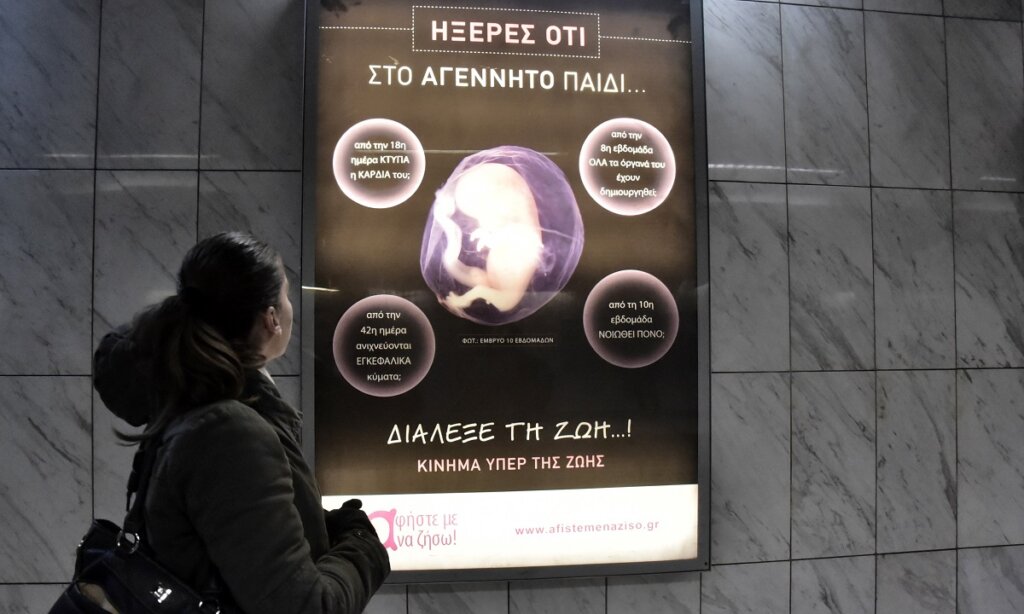Last updated on January 28th, 2020 at 09:53 pm
Last week, the center-right Greek government ordered the Athens metro administration to remove a series of pro-life informative advertisements from its stations. The posters appeared on Monday, January 13th, and they depicted a fetus in its mother’s belly, surrounded by a series of questions about the unborn child’s development during the various stages of gestation.
The posters were created by the pro-life group “Afiste Me Na Ziso” (“Let me live”) and the questions on the posters read:
“Did you know that to the unborn child:
… from the 18th day does his heart beat?
… exhibits brain activity beginning on day 42?
… has all its organs formed by the eighth week?
… can feel pain from the tenth week?“
Finally, the poster made the appeal, “Choose life!”
Reactions were immediate and furious: many people on social media asked the Athens metro to remove the posters immediately; and several public figures, including members of the social democratic party (KINAL) and members of the leftist party (SYRIZA), expressed disgust at the depiction of an embryo on the posters.
The controversy quickly reached the Capitol, and the Ministry of Transport issued a statement saying that these advertisements offend women and their indisputable right to abort which is protected by law. [Abortion in Greece it has been legal since 1986.] Consequently, the government ordered the removal of the posters on the grounds that “campaigns carried out in public areas should not divide public opinion or directly insult women who are forced to make such a difficult choice like that of having an abortion.”
The discussion became of national relevance when a local sports newspaper decided to put the message “Let me live” on its front page, along with an article criticizing the rhetoric of women’s rights as notoriously neglecting the rights of unborn children and underlining that when women resort to abortion they do not remove from themselves a lump of cells, but a human life to which they had donated half of their genetic heritage. The piece also stressed that the government’s intervention threatens freedom of thought, calling the order to remove the posters an act of “progressive fascism“.
The government officially defends the right to abortion but at the same time tries to evade the consequences by inviting families to have more children, offering up to € 2000 in bonuses for each child. In fact, Greece has one of the lowest birth rates in Europe. If we add to this figure the high number of abortions practiced, which is estimated to have reached 300 thousand per year in a population of 11 million people, it is clear that the country is facing a worrying demographic crisis. For comparison, in Italy—which is a country of 60 million inhabitants—there are about 80 thousand annual abortions. Experts say that among European states, Greece is suffering most of all from the decline in births, a situation aggravated by the long economic crisis of the last decade, during which abortions have increased by 15%.
In Greece, abortion was legalized in the mid-1980s and there has been no public debate on this issue since. The recent posters are the first of their kind to appear in public: the strength of that fetus here is in being able to shake consciences after thirty-five years of silence.
